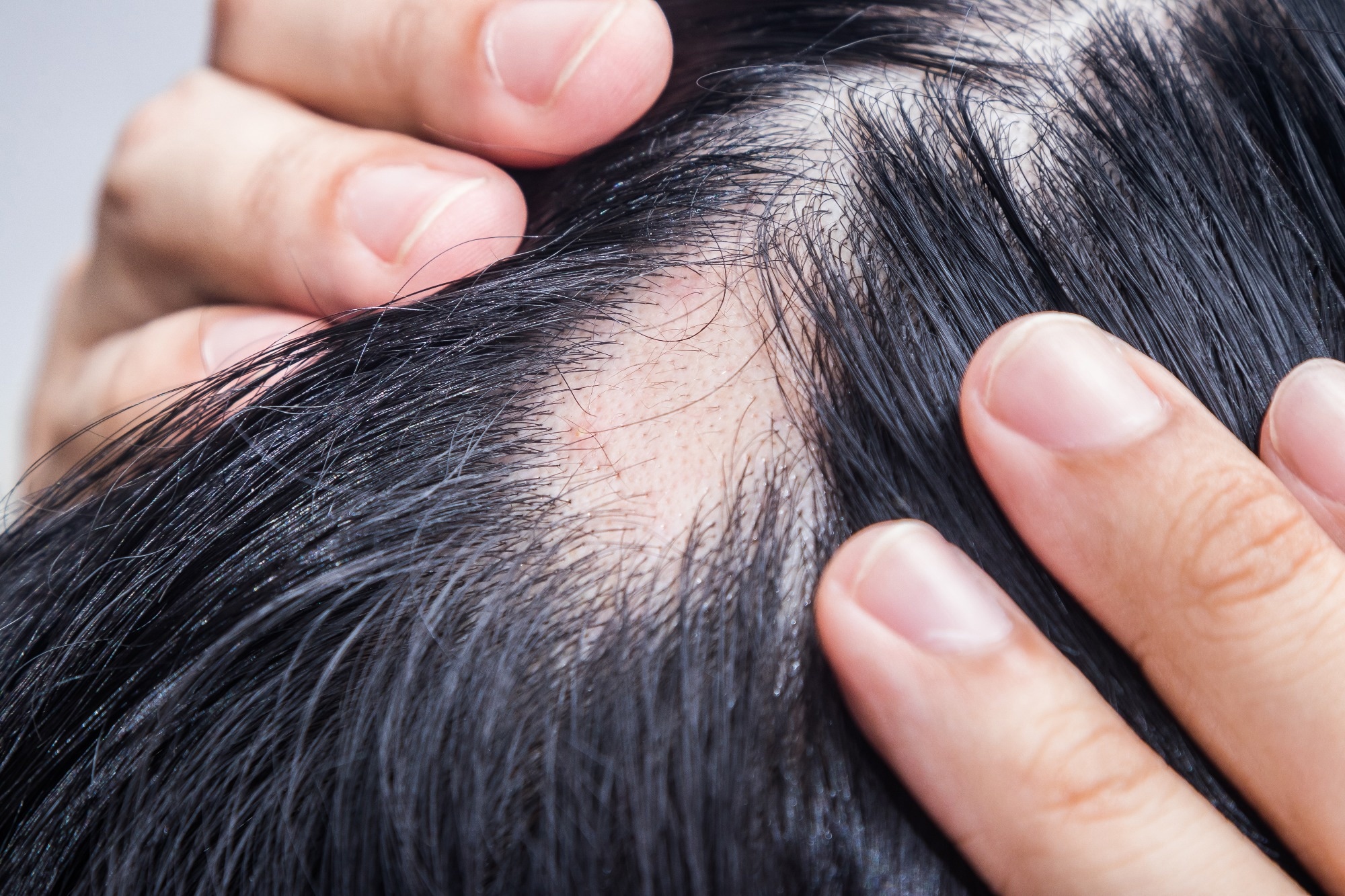Male pattern hair loss (MPHL) is a non-scarring and progressive form of hair loss. The age of onset of MPHL has been decreasing while its incidence has been increasing. Several studies have established the link between western-style dietary intake and MPHL. A new Nutrients journal study explored the association between sugar-sweetened beverage (SSB) consumption and MPHL in young men in China.
 Study: The Association between Sugar-Sweetened Beverages and Male Pattern Hair Loss in Young Men. Image Credit: Landscapemania / Shutterstock
Study: The Association between Sugar-Sweetened Beverages and Male Pattern Hair Loss in Young Men. Image Credit: Landscapemania / Shutterstock
Background
Various aspects of MPHL affect a person's life, such as self-confidence, psychological distress, and physical health. Various factors, including sleep time, anxiety, genetics, age, and body mass index (BMI), could contribute to it. According to research, increasing quantities of added sugar in western diets are linked to MPHL.
Young populations consume higher quantities of SSBs, such as juice, soft drinks, energy drinks, sports drinks, or sweet tea/coffee. For example, 49% of adults and 63% of youth in the USA consume an SSB on a given day. The situation is similar in China, where SSB consumption is highest in the 13-29 age group (22.38%). SSB consumption has been linked to many health problems like tooth decay, obesity, and emotional issues. However, epidemiological studies on the association between MPHL and SSB intake are still few, especially concerning the young population. Therefore, this association needs to be confirmed by future research.
About the Study
This cross-sectional study was conducted from January to April 2022 in mainland China. A total of 1,951 men aged 18–45 were recruited from 31 provinces. A self-reported online survey was used for data collection. Two attention-check questions were deliberately added to the survey to ensure high survey quality. In addition, four types of participants were excluded: those with scalp infections, cancer, unreasonable physical data, and those who took less than 5 minutes to complete the survey.
The associations between the amount/frequency of SSB consumption and MPHL were studied. Researchers used a binary logistic regression model with adjustments for confounders, such as sociodemographic factors, hair status, dietary intake, lifestyle, and psychological factors.
Key Findings
The scientists observed a significant association between high SSB consumption and MPHL. This finding could be rationalized by many potential direct and indirect mechanisms. The biochemical symptoms of androgenetic alopecia (AGA) in the scalp hint towards an overactive polyol pathway. The high sugar content in SSBs triggers higher serum glucose concentration, which subsequently activates the polyol pathway. This reduces the amount of glucose available to the outer root sheath keratinocytes of hair follicles, leading to MPHL.
High sugar intake is often coupled with high lipid intake, and MPHL has been seen to be caused by a high-fat diet. This phenomenon has been demonstrated in animal studies on mice. However, the association between SSBs and MPHL remained significant even after adjusting for the intake frequency of oils, fat, and deep-fried food. This suggested SSB be an independent factor linked with MPHL. According to the study, chronic diseases and emotional factors also mediate the association between SSB intake and MPHL.
Post-traumatic stress disorder (PTSD) was seen to be significantly associated with MPHL. However, after controlling for PTSD, the association between SSB intake and MPHL was no longer significant. This finding suggested PTSD is a more important factor leading to MPHL than SSB intake.
Limitations of the Study
An important limitation of the study is its cross-sectional nature, relying on self-reported data. Recall bias could make it difficult to consistently estimate the causal and temporal relationships between MPHL and SSB intake. The simultaneity issue, i.e., whether SSB influences MPHL or MPHL patients consume more SSBs, was unclear in the study and should be investigated in future research.
Furthermore, sampling bias cannot be ruled out since less educated individuals, and those without internet access have been excluded from the online survey. There was also no distinction made between the different degrees of MPHL. This was because very few individuals had either moderate or severe MPHL.
Since the MPHL was not clinically diagnosed, the study's results have a suggestive effect only. Lastly, the researchers did not collect data on consuming other sweetened products besides SSBs. Therefore, the exact effects of sugar on MPHL could not be estimated with precision. However, the findings in this study should be confirmed through further longitudinal and interventional studies to provide accurate information for evidence-based health education in the future.